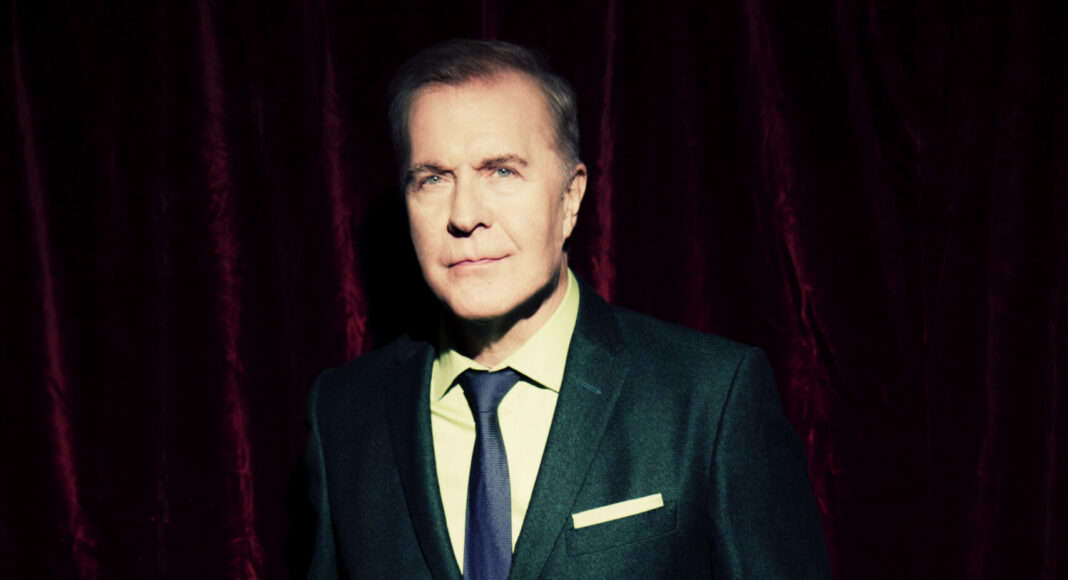In the early ’80s, the thriving Sheffield, England music scene was making dark music for dark times. Inspired in equal measure by industrial decay and extreme art movements such as Dada and Surrealism, it was home to groups like proto-industrialists Cabaret Voltaire and the Human League—which, far from its later radio-friendly incarnation, was in the midst of pioneering bleakwave with songs like “Life Kills” and “Circus of Death.” One of these experimental electronic bands was Vice Versa, which put out the propulsive, dissonant album 8 Aspects of Vice Versa in 1980. After the group’s vocalist subsequently left, two of the other founding members, Mark White and Stephen Singleton, were interviewed by local music writer Martin Fry. In what may be New Wave music’s biggest career-changing snap decision, they asked Fry to join the band on the spot, as a keyboardist. Then they discovered he could sing. “Martin was a huge fan of the writings of Samuel Beckett and Truman Capote, so he started rapping and singing about these guys, making us laugh with his ideas—‘Funky Beckett, he was dancing in the library’… Me and Mark were in hysterics,” Singleton told The Electricity Club in 2015.
Before long, Vice Versa had refashioned itself into ABC, with Fry on vocals, White on guitar, Singleton on sax, and new drummer David Palmer. Their romantic sound and gold-lamé-suit look was the exact opposite of what anyone expected from a Sheffield band.
“A lot of bands were kind of looking to [George Orwell’s] 1984 in the early ’80s, and going, ‘I wonder what the future is going to be like. Is it going to be really grim?’” Fry tells me by phone. “Well, we wanted it to be dayglo and bright. That’s when I started writing love songs, really—that was a complete departure from, say, the Clash and the [Sex] Pistols and stuff like that.”
But there was nothing ordinary about Fry’s love songs—his songwriting inspirations ranged from the Pistols’ John Lydon to Lou Reed to Sly Stone. On the band’s 1982 album debut The Lexicon of Love, Fry poured all the swirling wordplay energy that had floored White and Singleton into rhyme after extraordinary rhyme, passionately crooning his lyrical flow like a suave cross between David Bowie and Ice Cube.
Propelled by the lush, orchestral single “The Look of Love (Part One)” and the funky “Tears Are Not Enough,” the album went gold in the U.S. and platinum in the U.K., and became a landmark record of the 1980s. Though the album’s lineup started to splinter not long after its release, Fry has carried on with various incarnations of ABC; the current tour is celebrating The Lexicon of Love’s 40th anniversary, and comes to San Jose’s Music in the Park on Friday, July 15.
What the world seemed to want ABC to do after The Lexicon of Love was make … the same record over again. But Fry’s contrarian spirit persisted, with the band putting out the guitar-driven Beauty Stab in 1983, and then the electro-pop record How to Be A … Zillionaire, which was so out of left field in 1985 that ABC’s record company didn’t even want to release it.
“The label hated it,” Fry says. “I remember going in, and they had a poster up and they had defaced it themselves—you know, this was the publicity department.”
The album turned out to be ahead of its time, especially with a series of wild remixes that, with their abrasive electronic sound, actually harkened back to the experimental Sheffield scene Fry had once rejected.
“It was sort of a rebellious spirit,” he says of the twisting, always-surprising path he chose for ABC. “With Zillionaire, we wanted to make it as plastic and as electronic as possible, and to see how much truth you could put in there. And funnily enough, music did develop that way with EDM and stuff. And I meet guys who go, ‘Man, in ’85, you were doing stuff that we were aspiring to in the late ’90s,’ guys from hip hop who really enjoyed the beats and the 12-inch mixes we were doing. We wanted to make it a very extreme sound.”
British fans were mixed, but U.S. audiences embraced the album, sending the singles “Be Near Me” and “(How to Be a) Millionaire” to number 4 and 9 on the Billboard charts, respectively. But just as the band was set to capitalize on its international success, Fry was diagnosed with Hodgkin’s lymphoma, sending him from a world tour to a cancer ward.
After beating the disease, he was in a celebratory mood for ABC’s next record, 1987’s Alphabet City, which brought them another hit single (in both the U.S. and U.K.), “When Smokey Sings.” By 1991, however, remaining original members Fry and White had dissolved the band.
Fry picked it up again in time for the wave of ’80s nostalgia in the 2000s, and in 2016 he did the only thing his little contrarian heart could: deliver the sequel album The Lexicon of Love II—three-and-a-half decades after the world had demanded it.
“I’ve never been scared of people not liking what you do,” says Fry. “If they don’t like what you do, they remember you for it.”
ABC plays First Tech Federal Credit Union Music in the Park with co-headliners A Flock of Seagulls, 5-10pm on Friday, July 15, at Plaza de Cesar Chavez, 1 Paseo de San Antonio, San Jose. $35-$75, mitpsj.com and CalTix.com.



